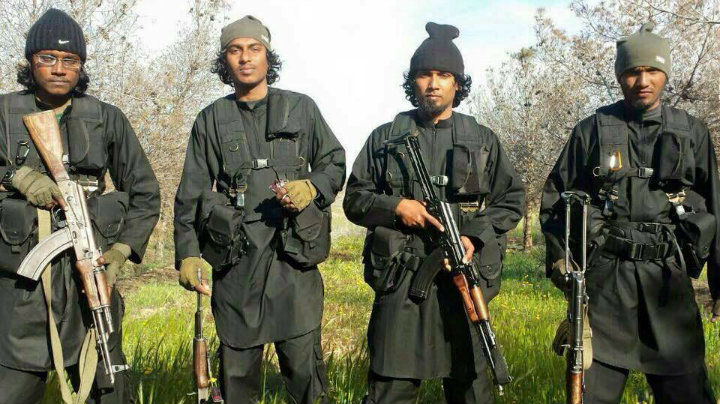Politics of radicalisation: how the Maldives is failing to stem violent extremism
Azim Zahir explores the array of factors that fuel radicalisation in the Maldives; “block thinking” that does not bother to understand complexities; government’s trivialising of the issue; instrumentalisation of religion by all political parties; and the “Islamisation” of gangs.

25 Apr 2016, 9:00 AM
Twelve people related to one family from the Maldives left for Syria in December 2015, reportedly to join the ISIS. They included four sisters, three brothers, the wife of one of the brothers, two husbands of two of the four sisters, their two-year son and a six-month old daughter. The family of the eight siblings comes from the remote island of Kondey in Gaaf Alif Atoll with a population of just 544 people. This latter fact may not be significant, as they lived in the capital Malé.
This is just one of the latest reported cases of foreign fighters from the Maldives going to Syria. The Soufan Group, a think tank monitoring the flow of foreign fighters in Syria, says the official count – defined as count based on either government sources, or quoting government sources, or from the UN, or a research or an academic source – for the Maldives is 200.
However, the official Maldivian government count fluctuates between 20 and 100. This month, the country’s Counter-Terrorism Centre said the count was at most a two-digit figure.
Based on media reports of actual cases since 2014, there seems to be a steady flow of Maldivians going to Syria since at least mid 2013. The government has so far failed to stem this flow. But the flow itself does not necessarily show the government has not taken measures against violent extremism. After all, the numbers from other parts like the Western Europe also climbed between 2013 and 2016 despite international efforts to stem the flow.
Become a member
Get full access to our archive and personalise your experience.
Already a member?
Discussion
No comments yet. Be the first to share your thoughts!
No comments yet. Be the first to join the conversation!
Join the Conversation
Sign in to share your thoughts under an alias and take part in the discussion. Independent journalism thrives on open, respectful debate — your voice matters.




